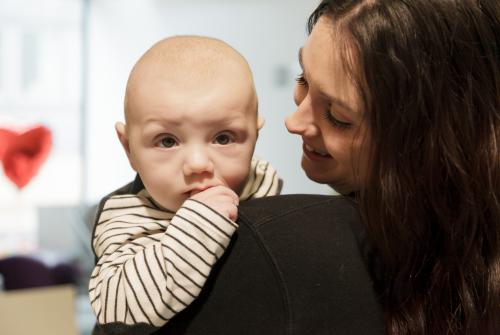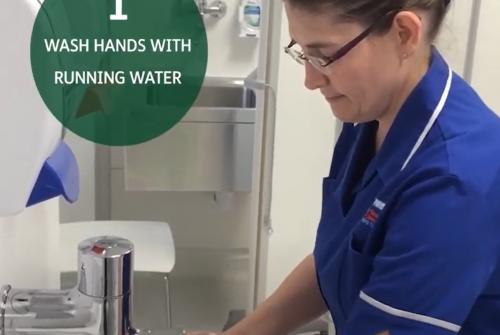Coronavirus (COVID-19) FAQs
We understand that you might be worried about coronavirus – also known as COVID-19 – particularly if your child has a long-term health condition.
We are following official guidance from the NHS, UK Government and World Health Organisation. The situation is changing constantly so we will update this information as needed – you can always check the GOV.UK website at https://www.gov.uk/coronavirus for up to the minute advice.
A: This is a virus that affects the lungs and therefore people’s breathing.
A: Read about the symptoms of COVID-19 here
A: The evidence to date suggests that although children do develop COVID-19, very few children develop severe symptoms, even if they have an underlying health condition.
If you, your child or anyone else in your household has symptoms of COVID-19, please do not visit your doctor or pharmacist – stay at home and use the NHS 111 online service at 111.nhs.uk for urgent medical advice.
However, if you are worried about your child or feel their life is at risk, you should call 999 or go to your local A&E or urgent care centre as you normally would.
If you are due to attend GOSH and you or your child has symptoms of COVID-19, please call their speciality team for advice and support before visiting the hospital.
A: All viruses have the ability to ‘mutate’ or change over time, and the COVID-19 virus is no different. A new variant of the COVID-19 strain has been identified as part of the routine surveillance which is carried out by Public Health England. It is normal for a virus to mutate in order to better adapt to infecting people, which is what this virus has done. It is more efficient at causing infection, which is what is meant when you hear talk of it being more transmissable or infectious. All viruses have the capability to adapt in this way, and this is something which was expected. It does not cause more severe disease, but it will infect more people.
A. If your child has symptoms including a fever, diarrhoea and abdominal pain, call NHS 111 or access the service online at 111.nhs.uk. If you’re very worried about your child, please call 999 or take them to A&E or an urgent care centre as you normally would. They are open for all children who need care and are safe to attend.
You may have seen reports in the media of very unwell children being admitted to hospital with an inflammatory syndrome characterised by symptoms including fever, abdominal pain, diarrhoea and skin rashes. These symptoms have been compared to a separate condition called Kawasaki disease.
This inflammatory syndrome is affecting only a small number of children, but it's really important that if you do have concerns about your child, you seek urgent treatment. We will continue to follow the latest understanding of this syndrome to make sure we can best care for these patients. Information about PIMS-TS is available at www.gosh.nhs.uk/conditions-and-treatments/conditions-we-treat/paediatric-inflammatory-multisystem-syndrome-pims.
A: If you have any questions or concerns, please seek advice from the GOSH teams involved in your child’s care. An easy and secure way to keep in touch is through the MyGOSH online portal. Find out more at gosh.nhs.uk/your-hospital-visit/mygosh. Please also consult the latest NHS guidance at nhs.uk.
A: No, taking medication as prescribed is very important and not taking it could make your child’s condition worse. Please consult your specialty team before making any decisions regarding your child’s medication.
A: In line with current guidelines, no testing is needed before you attend GOSH. However, all patients requiring a procedure will be tested for Covid-19 during their admission. Parents/ carers will be asked a series of symptom check questions daily.
No one should visit the hospital if they feel unwell, and anyone who develops flu like symptoms while at the hospital should inform the ward and go home immediately.
Outpatient appointment
If you are coming to GOSH for an outpatient appointment, we will contact you 24 hours before your appointment to ask questions about you and your families’ health. We will ask you these questions again when you arrive at GOSH. This is in line with national guidance to keep you, your family and our staff safe.
Our doctors and infection control specialists have been working together closely and listening carefully to national guidance to ensure we can provide your child with the care they need at GOSH safely.
If you are due to visit GOSH and you, or your child, is experiencing symptoms of COVID-19, or you think you may have come into close contact with someone affected, please call your child’s speciality team for support before visiting the hospital. Please do not go to your GP or pharmacist – stay at home and use the NHS 111 online service at 111.nhs.uk for urgent medical advice.
If you are coming to GOSH, there are some guidelines we’re asking families to follow, both before your visit and while you’re at the hospital. You can see them here.
Mask are not compulsory, but we ask that you wear a face mask when you are in all clinical areas, communal ward or bays. These are provided by the hospital.
However, families in a private cubicle will not be required to wear a mask.
A: Our staff are wearing various types of personal protective equipment (PPE), depending on where they work in the hospital. They’re trained on how to reduce the risk of passing on the virus within the hospital, including when masks and other types of PPE should be worn and how cleaning activities should be carried out across the hospital. Our guidelines are based on the latest national guidance for COVID-19 infection control.
If you have a question about PPE please speak to your nurse or ask to speak to your Ward Manager.
A: Play is an essential part of the support provided to patients at GOSH, and the hospital’s dedicated Play team continue to work with patients. As part of this, we have taken the decision to not reopen our play areas yet, but have a variety of ways patients can still access play services.
If you have any questions about how to access the support of our Play team, please check the sign on the ward’s play room door, speak to your ward’s Play Specialist, or ask the Nurse in Charge. You can find online resources for families, including activities recommended by the Play team, at gosh.com.kw/covid-19/resources-families


